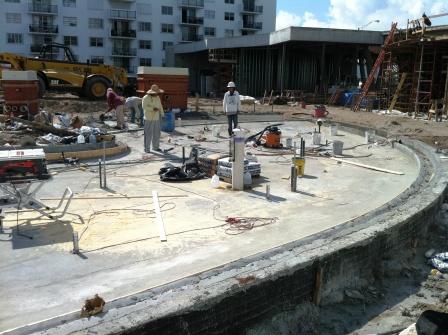BLOG
An arbitration decision rendered earlier this year by the State of Florida Division of Condominiums involving a dispute over alterations approved by a condominium board without a prior meeting and vote of the unit owners did not surprise our firm’s community association attorneys. We often find ourselves reminding association directors and property managers that the changes they are considering – albeit seemingly minor in nature – could be among those changes that are considered “material alterations” requiring approval by the membership.
While what constitutes a “material” alteration is not always clear, the rule of thumb is that if it changes the color, form, shape, elements or specifications from the original design or plan, or existing condition, in such a manner as to appreciably affect or influence its function, use, or appearance, then it is material. And, while the additional costs and time commitments that the approval process entails can be considered a bit ponderous, this recent decision serves as an important reminder of the potentially significant economic repercussions of forgoing the vote.
The case involved alterations that were approved by the Nine Island Avenue Condominium Association board of directors, which included changes and improvements to the pool deck furniture including cushions and fixtures, trellis, observation deck, pool steps and ladder, landscaping, the color of the paint in the koi pond, and the removal of a water filtration system.  After a hearing that took two full days and included a number of witnesses and experts for both the unit-owner petitioner, Ms. Jacqueline Simkin, and the association, the arbitrator found in favor of the unit owner and concluded that prior approval by the unit owners was required for practically every single alteration that had been made at the property.
After a hearing that took two full days and included a number of witnesses and experts for both the unit-owner petitioner, Ms. Jacqueline Simkin, and the association, the arbitrator found in favor of the unit owner and concluded that prior approval by the unit owners was required for practically every single alteration that had been made at the property.
The order concludes:
“Unless the alteration is approved by 66 2/3% of the unit owners, no later than December 31, 2014, the Association shall:
a. Return the color of the recreation deck waterways and curbing to the original light gray, and return the color scheme of the deck furnishings to original grey-blue, or something substantially similar;
b. Rebuild the trellises to the original footprint, design intent, appearance, and natural weathered wood finish, subject to current code requirements;
c. Return the gazebo to its original natural weathered wood finish;
d. Rebuild the wooden observation deck over the waterway;
e. Replace the pool egress ladders with ladders substantially similar to original, such that the steps extend farther down into the water and can be used as a means of egress from the pool by unit owners;
f. Return the entrance drive landscaping to its original, or substantially similar, condition; and
g. Repair or replace the building water filtration system with a comparable system utilizing current technology.”
Depending on how the final vote of the members turns out, the association may be facing significant expenses in order to return some or all of these elements to their original condition prior to the alterations being completed. These expenses, not to mention the potentially contentious nature of the meetings that will lead up to the vote as a result of this significant lapse in judgment, will certainly prove to be more costly and difficult for the association than the vote that it should have undertaken prior to moving forward with the alterations. Not to mention the attorneys fees and costs incurred by the association in defending this proceeding – and the unit owner’s attorneys fees and costs which the association will be responsible to reimburse.
This costly lesson comes free of charge to all other Florida condominium association boards of directors that are considering moving forward with what potentially may be considered a “material alteration” without obtaining prior membership approval as required by the Condominium Act. Bypassing the approval process is simply not worth the financial risk, as this condominium association learned the hard way.

